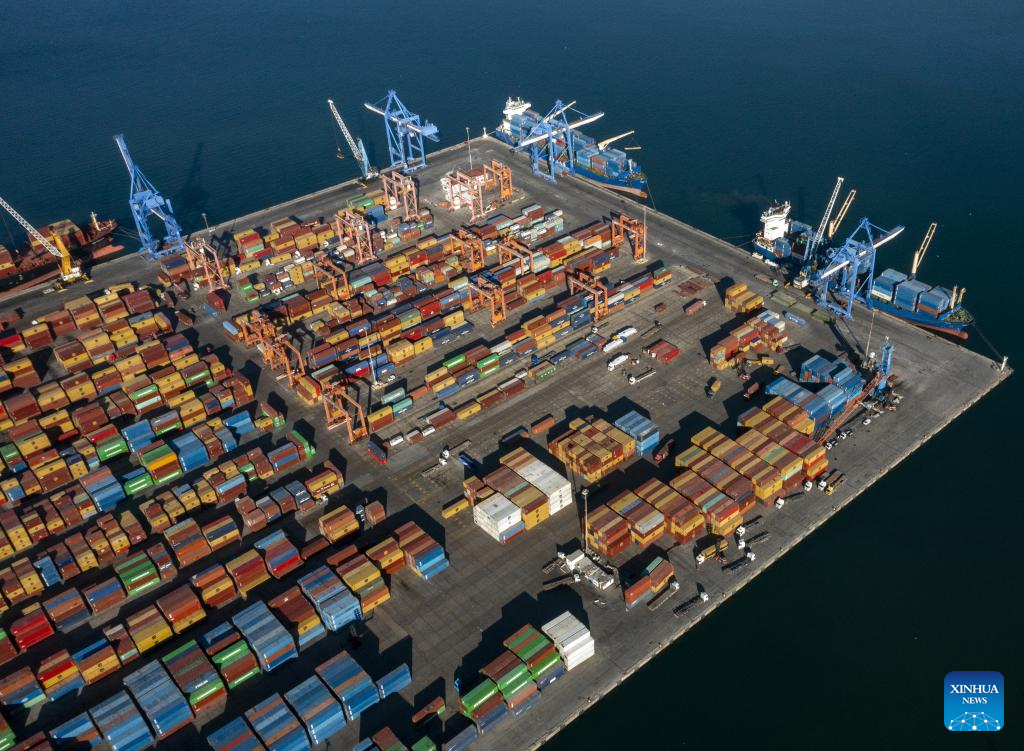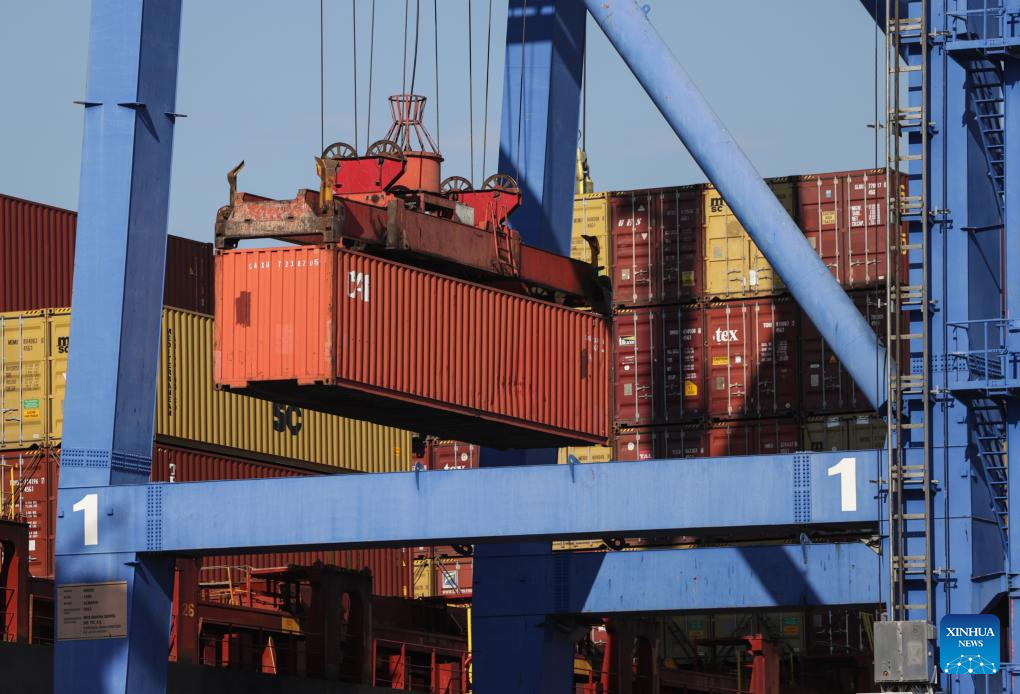
An aerial drone photo taken on Sept. 2, 2024 shows cargo containers at the Port of Izmir in Izmir, Türkiye.(Mustafa Kaya/Handout via Xinhua)
by Burak Akinci
ANKARA, Sept. 2 (Xinhua) -- Türkiye launched an economic overhaul over a year ago to rein in soaring inflation. While the inflation rate has begun to decline in recent months, some analysts argue that these measures have not alleviated financial strains for most families, advocating for long-term structural reforms to complement the existing financial measures.
The May 2023 general elections brought about a shift towards greater economic orthodoxy, replacing loose monetary policy and addressing the sharp depreciation of the national currency, the lira.
One month after the elections, as the economy continued to deteriorate, President Recep Tayyip Erdogan, having secured a new term in office, appointed Mehmet Simsek as Minister of Treasury and Finance.
Subsequently, interest rates were raised from 8.5 to 50 percent, accompanied by painful austerity measures and a tax overhaul.
The policies were designed to reduce domestic demand, regulate inflation, and stabilize the lira. As a result, inflation dropped to 61.78 percent in July, down from 85.51 percent in October 2022 and 75.45 percent in May 2024.
The lira has relatively stabilized and the country's current account deficit has decreased due to increased exports and tourism income, and foreign investments have also returned.
The central bank has projected inflation rates of 38 percent for 2024 and 14 percent for 2025, with expectations for a decline to 9 percent by the end of 2026.
However, despite this improvement, the economic program has received strong criticism from low and middle-income households and pensioners in particular, who are experiencing financial burdens unseen in decades.
Simsek's policies are perceived by its critics as placing the burden of the poor economy on the shoulders of common taxpayers.
"Inflation is dropping because of the so-called base effect and policies to curb demand. However, the program lacks measures to reduce income inequality, which is a major issue," Mustafa Sonmez, an Istanbul-based independent economist, told Xinhua.
"Most citizens are struggling to make ends meet because the economic programme has failed to address the burden of low and middle-income households," Sonmez added.
The Economic Confidence Index in Türkiye fell to its lowest level since May 2021, declining by 1.3 percent on a monthly basis in August to 93.1, the Turkish Statistical Institute announced on August 28.
The index, which ranges from 0 to 200, indicates optimism about the general economic situation when above 100 and pessimism when below 100.
The August figure marked one of the lowest points in economic confidence in over three years, reflecting growing concerns about the country's economic outlook.
According to the latest report from the Confederation of Turkish Trade Unions published on August 29, the hunger threshold, which indicates the minimum amount of money needed for a family of four not to starve, rose to 19,271 liras (565 U.S. dollars) a month.
This amount exceeds the monthly minimum wage of 17,000 liras earned by millions of workers in Türkiye.
"This trend shows that while price increases have slowed over the last three months, they remain a persistent problem as the cost of living continues to exceed wage growth," Senol Babuscu, a professor of finance at Baskent University in the Turkish capital Ankara, told Xinhua.
He also noted that consumer expectations of further high prices pose a challenge for the central bank in reining in inflation.
Babuscu emphasized that for the economy to recover, a brake on public spending and long-term structural reforms are needed.
However, some analysts argue that Simsek is doing a good job, and his potential resignation could have serious consequences. This comes amid speculation that he might step down due to criticism of his program within Erdogan's ruling Justice and Development Party.
On August 21, both the Turkish presidency and Simsek dismissed such speculations.
Economist Timothy Ash, known for his analyses of Türkiye's economy, stated on his X account that Simsek's departure could result in "massive devaluation, capital flight, and accelerated dollarization."
Ash, a strategist at RBC Bluebay Asset Management in London, also warned that such a scenario may also fuel a systemic banking and balance of payments crisis. ■

Cargo containers are seen at the Port of Izmir in Izmir, Türkiye, Sept. 2, 2024.(Mustafa Kaya/Handout via Xinhua)



